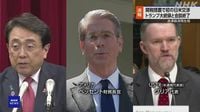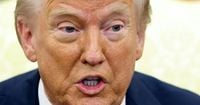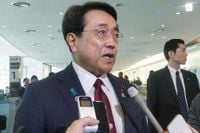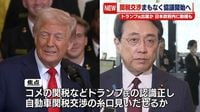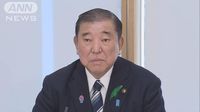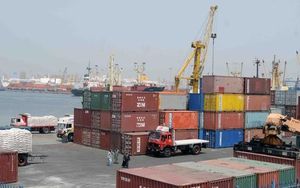In a surprising turn of events, President Donald Trump announced his participation in the Japan-U.S. tariff negotiations set to begin on April 16, 2025, creating significant ripples in diplomatic circles. This unexpected involvement by a sitting president in discussions typically reserved for lower-level officials has raised eyebrows and sparked concerns within the Japanese government regarding the potential shift in negotiation dynamics.
Chief Cabinet Secretary Hiroshi Hayashi remarked, "We have made various preparations" in light of Trump's announcement, which came via social media. The Japanese government, caught off guard, held urgent discussions on April 16 to strategize their approach. Minister of Economic Revitalization, Akazawa Ryozo, participated in the discussions from the United States, indicating the seriousness with which Japan is treating the upcoming talks.
Sources close to the Prime Minister's office expressed their astonishment, stating that Trump's involvement was "completely unexpected" and heightened fears that the U.S. could seize the initiative in the negotiations. Concerns were particularly pronounced regarding the absence of Defense Ministry officials accompanying Akazawa, leading to worries about his ability to handle the negotiations effectively.
As the negotiations commenced, the Japanese economy braced for the impact of potential U.S. tariffs, which could exacerbate existing economic challenges. The yen's recent fluctuations, trading at around 142 yen to the dollar—up from 158 yen earlier this year—have added another layer of complexity to the discussions. The U.S. administration has indicated a desire to discuss currency exchange rates, a topic that Japan typically prefers to keep separate from trade discussions.
Trump's announcement on the morning of April 16, just as Akazawa was en route to Washington, underscored the urgency from the U.S. side to achieve quick results. The market pressures to revise mutual tariffs, driven by concerns over U.S. exports, have been a significant backdrop to this diplomatic engagement.
During a meeting at the White House on April 17, Akazawa engaged with Trump for about an hour, alongside key officials such as Treasury Secretary Vincent and USTR Representative Gloria. The discussions focused on Japan's substantial investments in the U.S., which Akazawa emphasized as contributing positively to the American economy and employment. He strongly urged a review of the tariffs, while also carefully listening to the U.S. side's demands.
Prime Minister Ishibashi, in a message posted on social media, expressed gratitude for Trump's willingness to meet with Akazawa, highlighting the importance of the bilateral relationship. He stated, "President Trump, thank you for meeting with my special envoy, Minister Akazawa. I look forward to a fruitful discussion that will lead to further development of the bilateral relationship."
Despite the apparent goodwill, analysts are cautious about the implications of Trump's direct involvement. The negotiations are not only about tariffs but also about broader economic policies, including currency manipulation allegations that have historically strained U.S.-Japan relations. Gloria previously noted the adverse effects of currency manipulation on U.S. exporters, stating, "Countries need to ensure that they are not artificially increasing their competitiveness by undervaluing their currencies."
As the negotiations unfold, the focus will likely remain on how the U.S. perceives the currency exchange rate issue and what specific measures they may demand from Japan. The outcome of these discussions could significantly influence future trade strategies, particularly for nations facing similar pressures from U.S. trade policies.
Japan's strategy in these negotiations aims to separate currency issues from tariff discussions, a tactic successfully employed during Trump's first term. The recognition that currency matters should be handled by financial authorities was a principle shared between former Prime Minister Shinzo Abe and Trump, leading to previous agreements that excluded currency provisions.
As the talks progress, the Japanese government remains vigilant, aware that any concessions made could have far-reaching consequences for the economy. The potential for a double whammy—facing global economic slowdowns due to tariffs while also grappling with a strong yen—poses a significant risk for Japan's export-dependent economy.
In summary, the upcoming Japan-U.S. tariff negotiations are set against a backdrop of unexpected presidential involvement and heightened market pressures. As both nations navigate these complex discussions, the world watches closely, aware that the results could reshape trade dynamics not just between Japan and the U.S., but also for other countries caught in the crossfire of U.S. trade policies.
